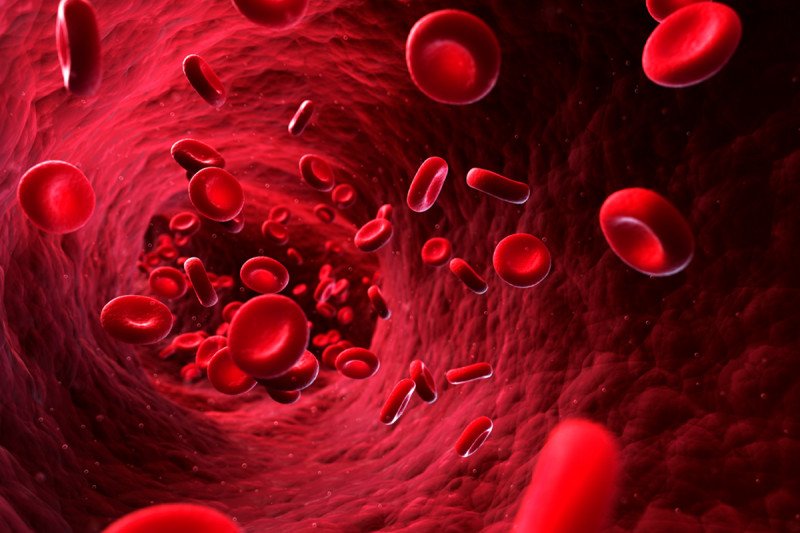
Whether it’s a routine check of cholesterol and iron levels or a much more serious and complex test, the experience of having blood drawn is nearly universal: You roll up your sleeve and get a tourniquet on your arm, then a swab with an alcohol wipe and a needle stick.
But what happens to the blood after it’s whisked away to a lab has become increasingly cutting-edge. Technology can now reveal secrets in blood that would have remained a mystery just a few years ago.
Perhaps one of the most exciting blood tests to arise in the past few years is the liquid biopsy. These tests aim to characterize the molecular workings of cancer in a way that’s easier, faster, and less invasive for patients.
Liquid biopsies saw a big leap forward in June 2019, when the New York State Department of Health approved a liquid biopsy test called MSK-ACCESS, developed at Memorial Sloan Kettering. “Unlike most other liquid biopsies, which look for only a few mutations associated with one particular type of cancer, this test is very different because it can be used for any kind of advanced cancer,” says medical oncologist Bob Li, whose research focuses on the development of liquid biopsies and the use of these tests in patient care.
“This test directly compares a patient’s cancerous and normal DNA for accurate diagnosis,” adds Dr. Li, who is Co-Director of the Thoracic Liquid Biopsy Program at MSK. MSK-ACCESS (a much shorter name for Analysis of Circulating Cell-Free DNA to Evaluate Somatic Status) is already starting to be used as a standard part of care across MSK. The test, which is currently funded by philanthropy, can detect common cancer mutations in 129 genes using only a blood sample.

Liquid biopsies are one of the methods being developed to support the growing field of precision medicine. Precision drugs aim to zero in on the molecular changes that define a tumor, stopping cancer cells from growing while sparing healthy tissue. But to treat cancer with one of these targeted drugs, doctors have to figure out which gene mutation is propelling the tumor. Once they identify a cancer’s so-called driver mutation, they can select the best drug to block that mutation and quell the cancer’s growth.
Finding the driver mutation is usually not an easy task. Tests like MSK-ACCESS illuminate a cancer’s genomic changes by sifting through hundreds of potential cancer-causing mutations in millions of DNA molecules. “We developed MSK-ACCESS to address the urgent clinical needs in molecular diagnosis, particularly when tumor biopsies are not able to provide the necessary answers,” says geneticist Michael Berger, Associate Director of the Marie-Josée and Henry R. Kravis Center for Molecular Oncology (CMO) at MSK. MSK-ACCESS was developed by the CMO and members of the Department of Pathology.
The same collaborative team also developed MSK-IMPACT™, a test that has been used since 2014 to search for mutations and other genetic changes in tumor tissue. “All of the data that we’ve collected from MSK-IMPACT was used to develop MSK-ACCESS,” Dr. Berger says.
“When we are able to obtain tissue samples, MSK-IMPACT is still the gold standard for molecular analysis,” Dr. Berger adds. “But liquid biopsies have a lot of practical advantages and open up a range of new clinical opportunities.”
Taking a Wide-Ranging Look at Cancer
MSK-ACCESS and other liquid biopsies are designed to take advantage of one of the attributes of cancer cells: When they die, cancer cells break apart and release their DNA into the bloodstream. Liquid biopsy tests can search this free-floating genetic material and detect cancer mutations.
These tests have several benefits for patients. Since a more invasive procedure like a tissue biopsy isn’t required and liquid biopsies can be done during a regular office visit, they can be performed much more often. This allows doctors to monitor cancer more closely, to learn if it’s changing and becoming resistant to treatment. Additionally, in people with cancer that is widespread, a single liquid biopsy test provides a comprehensive look at the genetic changes across every tumor in the body.

Research done by Dr. Li and colleagues has found that liquid biopsies are also faster than tissue biopsies. When time is of the essence for patients and their families, speed matters.
Finding a tumor’s driver mutation quickly is important because it enables people who are sick to start the right drug sooner. And when a tumor develops resistance to therapy, knowing earlier on that a drug has stopped working can help ensure that the patient will continue to get effective treatment.
“Liquid biopsies can make a huge difference in patient care,” Dr. Li says. “Being able to get results quickly can help guide rapid precision therapy and provide peace of mind to patients and their families.”
New Applications for an Important Tool
“We are still learning all the ways that MSK-ACCESS can benefit our patients,” Dr. Berger says. “I’m excited to continue developing this test with my colleagues.” He notes that the team already has plans to expand the way the test is used. For one thing, MSK-ACCESS will be an integral part of upcoming studies aimed at determining which patients are at the greatest risk of having their cancer come back after surgery.
“Liquid biopsies hold promise for many additional applications in the future,”
Dr. Li concludes. “But it’s important for patients to know that liquid biopsy is already here today in the clinic. For people with advanced-stage cancer, these tests may provide important guidance for making treatment decisions.”



